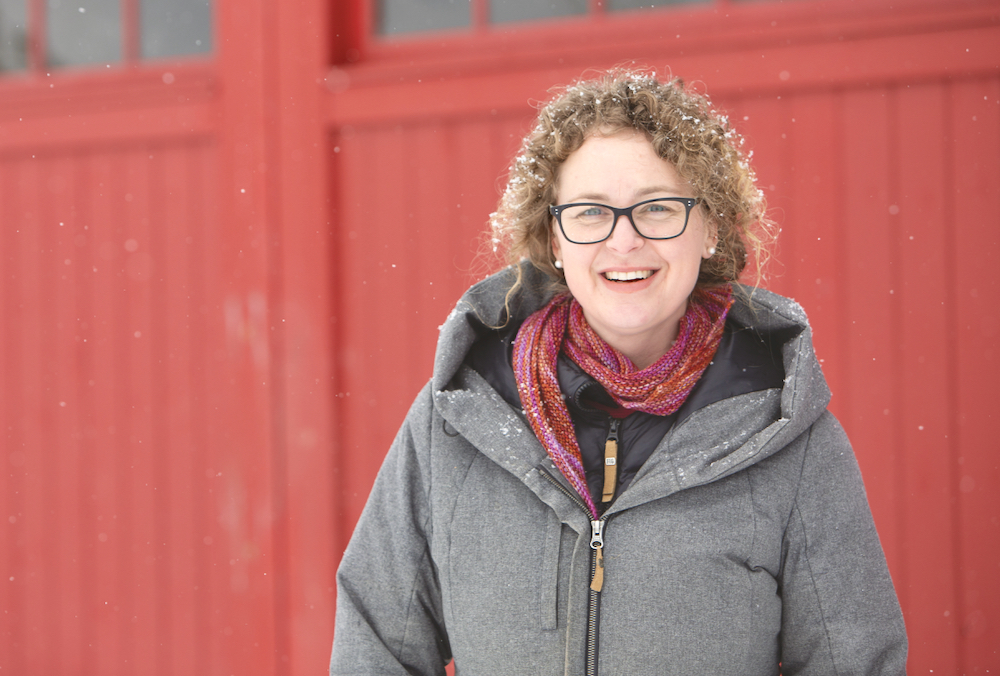When Dana Thatcher started getting compliments from the other teachers at school about the food she was bringing for lunch, little did she know it would lead to a thriving farm, food and agri-tourism business.
“People were interested in what I was eating, and the fact that we had grown it,” Thatcher recalls. “That’s what gave me the insight into the fact that people want to connect to farms and farmers and know more.”
It’s been almost 12 years since she left teaching to build the business, and now Thatcher Farms has a butcher shop, farm market, and a bakery and kitchen, in addition to the farm itself. It’s located east of Guelph and north of Fergus, Ont., where Dana and husband Adam own 140 acres of land and rent another 350 to grow crops. They raise and sell the meat from beef cattle, poultry and lamb and employ 20 local people.
Read Also

Five reasons why you avoid farm bookkeeping
Bookkeeping for the farm business might not be anyone’s favourite chore, but staying on top of it can help your farm access the funds it needs to grow.
While the pandemic dampened the agri-tourism side of the business — the Thatchers usually offer pick-your-own strawberries in spring and pumpkins in the fall — they also have a number of other attractions like a corn maze and, in summer 2021, they developed a sunflower trail where visitors can cut their own bouquets.
In 2022, they’re adding another business called Barn Swallow Fields that includes a new, barn-like venue that people can rent for weddings, live music shows, field dinners, reunions, corporate gatherings and other events. The website is already up and running.
The Thatchers have three children ranging in age from 10 to 14. Thomas, William and Sophie all pitch in and help with the family businesses.

Building from nothing
When they started out, Thatcher says they had no money, and her teaching salary often went to buy things like hog feed at the time. Initially, Adam was finishing hogs and had a hay and straw business.
“In the early 2000s, the commodity prices were so terrible, we knew we had to do something different,” she says. That’s when they started selling meat — beef, lamb, chicken and pork — as well as eggs out of the back of their house. Later, they added turkeys at Thanksgiving and Christmas.
They were also a bit naïve, and eager to please customers. So, they were open seven days a week, which, at the time, meant Dana would have to do things like interrupt feeding Sophie to deal with a customer who had come up the lane.
In the early days, they grew and made everything themselves. Now, while they still supply the meat, they also source from 15 to 20 local suppliers who provide a range of items from jams and sauces to pickles and other preserves.
Being a first-generation farm family, they’ve learned, has both its upsides and downsides.
“We sometimes wish that we had family involved to share the workload and to provide some financial help,” she says. “But at the end of the day, the struggle is ours, the choices are ours, and Adam and I make the decisions with- out having to get approval from another family member.”

The couple have different skill sets — Adam loves agriculture and farming and graduated from the Ontario Agricultural College at the University of Guelph. Dana says she’s the “people person” and takes care of the retail side of the business. All of their marketing is done on social media — mostly Instagram and some Facebook.
“It’s loads and loads of hard work, but the magical piece is that we’re working together toward our shared goals,” she says.
Networking crucial
Thatcher attributes the farm’s success to their commitment to staying interested and curious about trends. Having patience and a willingness to network are two traits that she has also learned to highly value as a business person.
“You have to be open to putting yourself out there,” she says, and if you’re new to value adding, you also need to recognize that you can’t possibly know it all. The decision to join the Ontario Farm Fresh Marketing Association, she stresses, was life changing.
Any time issues that have come up in the business, whether about the sunflowers, fertilizer recommendations or getting a good accountant, the supportive people in the association are always willing to take their call and share advice and experience, she says.
Another organization that they have relied on over the years is the Outstanding Young Farmers — a Canada-wide program that recognizes the best and brightest in the farming business. The Thatchers won in 2013 and received a lifetime membership to the organization.

Being open to people also helps when there are no boundaries between the business and home life. In fact, Dana says that they have a sign at the road end of the lane that says “Welcome to our farm and our home.”
They now keep regular business hours, but sometimes they get drop-ins.
“People show up during our off-hours looking to buy our products — but then, we have to remind ourselves that we love what we do, and are grateful for our customers,” she says.
Hire good people
Besides having a loyal staff that goes the extra kilometre for them, the Thatchers have excellent support from, and they work closely with, their accountant, lawyer and banker — who understand them and their goals.
“We have a really great relationship with all of them — we worked at it over the years, and it means a lot, knowing we can ask for their support and guidance,” she says.
When they started out, they didn’t have a business plan, and like many entrepreneurial startups, Thatcher Farms grew out of “passion and necessity.”
But by 2014, as sales increased and they hired more staff, they decided to take CTEAM (Canadian Total Excellence in Agricultural Management), a two-year business program that helped them learn while developing their own strategic and operational business plans. The program helped them network with other farmers in taking courses, and the connection with the teachers made them more disciplined in their own thinking.
“It really helped us home in on who we were and where we wanted to be,” Dana says, adding that having solid plans and greater knowledge gave her more confidence in dealing with the bank.
“Our banker said I was the first person to ever ask about ratios,” she says. “It’s important to learn and understand ratios to be able to know where you stand in terms of profits and losses,” she says, adding that her banker now helps with the actual number crunching.

Thriving through the pandemic
Thatcher says that business was booming through the COVID-19 pandemic, and she credits having an e-commerce platform up and running for the two years leading up to March 2020 for keeping them afloat.
“We would not have successfully manoeuvred through it without that platform,” she says. The online shop offers products ranging from five-pound boxes of grilling steaks and garlic-seasoned lamb sausages to all kinds of jams and preserves to fruit and meat pies to ready-to-eat meals like chili and meatloaf. They even sell mitts and handbags from the hides of the cattle they have slaughtered.
In November, they re-opened their farm market to in-store customers. During the pandemic, they used the market as a warehouse and put coolers on its porch so customers could order and pre-pay online, then safely pick up their purchases outdoors.
“That was our strategy right from the beginning — we didn’t want to have any part of policing people coming into the store,” she says, adding that her customers were comfortable with the situation and grateful for the convenience.
Given the amount of growth and diversification they’ve experienced over the past few years, the Thatchers now plan to take some time to stay the course.
Says Dana, “We’re really happy with where we are — we’d like to take some time to enjoy it.”















